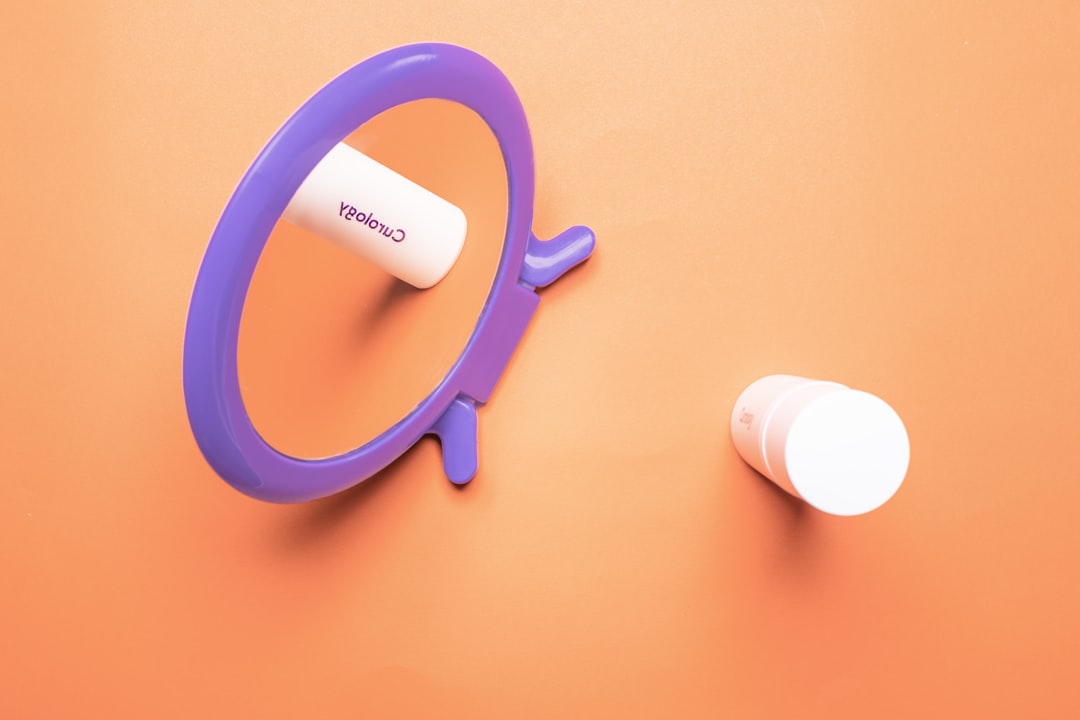
Top Collagen Supplements for Menopause: Rejuvenate Your Skin & Body
Menopause is a natural biological process that occurs in women typically between the ages of 45 and 55. It marks the end of a woman’s reproductive years and is characterized by a decrease in the production of estrogen and progesterone hormones. This hormonal shift can lead to a variety of symptoms such as hot flashes, night sweats, mood swings, and sleep disturbances. Additionally, menopause can have significant effects on the body, including changes in collagen production.
Collagen is the most abundant protein in the body and plays a crucial role in maintaining the health and integrity of various tissues, including the skin, joints, bones, and gut. It provides structure and support to these tissues, ensuring their proper function. As women go through menopause, there is a decline in collagen production, which can have negative effects on overall health and wellness.
Key Takeaways
- Collagen is an essential protein that provides structure and support to the body’s tissues, including skin, bones, and joints.
- Menopause can lead to a decline in collagen production, which can result in various health issues such as wrinkles, joint pain, and osteoporosis.
- Taking collagen supplements during menopause can help improve skin health, reduce joint pain and inflammation, prevent osteoporosis, and improve digestion and immunity.
- Some of the top collagen supplements for menopausal women include Vital Proteins Collagen Peptides, Sports Research Collagen Peptides, and NeoCell Super Collagen Powder.
- To maximize the benefits of collagen supplements during menopause, it’s important to choose the right supplement based on your specific needs and to follow a healthy lifestyle that includes a balanced diet and regular exercise.
Understanding Collagen and Its Importance for Menopausal Women
Collagen is a protein that is found throughout the body, providing structure and support to various tissues. It is made up of amino acids, primarily glycine, proline, and hydroxyproline. Collagen is responsible for maintaining the strength and elasticity of the skin, as well as providing cushioning and lubrication to the joints. It also plays a crucial role in bone health by providing structure to bones and promoting their density.
During menopause, there is a decline in collagen production due to the decrease in estrogen levels. Estrogen plays a key role in collagen synthesis by stimulating the production of enzymes that are involved in collagen formation. As estrogen levels decline, collagen production decreases, leading to a loss of skin elasticity, joint pain and stiffness, and decreased bone density.
Collagen is also important for gut health as it helps to maintain the integrity of the gut lining. It forms a protective barrier that prevents harmful substances from entering the bloodstream and promotes proper digestion and nutrient absorption. A decline in collagen production during menopause can lead to digestive issues such as bloating, gas, and constipation.
How Menopause Affects Collagen Production in the Body
Menopause has a significant impact on collagen production in the body. The decline in estrogen levels during menopause leads to a decrease in collagen synthesis. Estrogen plays a crucial role in collagen production by stimulating the production of enzymes that are involved in collagen formation. As estrogen levels decline, the production of these enzymes decreases, resulting in a decrease in collagen synthesis.
The effects of declining estrogen levels on collagen synthesis can be seen in various tissues throughout the body. In the skin, a decrease in collagen production leads to a loss of elasticity and firmness, resulting in wrinkles and sagging. In the joints, decreased collagen production can lead to joint pain, stiffness, and inflammation. In the bones, a decline in collagen production can contribute to decreased bone density and an increased risk of osteoporosis.
Collagen loss during menopause also contributes to common menopausal symptoms. For example, the decline in collagen production in the skin can lead to dryness and thinning, making it more susceptible to wrinkles and fine lines. In the joints, decreased collagen levels can result in increased joint pain and stiffness. In the gut, a loss of collagen can lead to digestive issues such as bloating and constipation.
Benefits of Taking Collagen Supplements During Menopause
| Benefits of Taking Collagen Supplements During Menopause |
|---|
| 1. Improves skin elasticity and hydration |
| 2. Reduces joint pain and stiffness |
| 3. Helps maintain bone density |
| 4. Promotes hair and nail growth |
| 5. Supports gut health and digestion |
| 6. Boosts muscle mass and strength |
| 7. May improve cardiovascular health |
Taking collagen supplements during menopause can provide numerous benefits for women experiencing the effects of declining collagen levels. These supplements are typically derived from animal sources such as bovine (cow), marine (fish), or chicken collagen. They come in various forms such as powders, capsules, or liquids.
One of the main benefits of collagen supplements is improved skin health. Collagen is essential for maintaining the elasticity and hydration of the skin. By supplementing with collagen, women can improve skin elasticity, reduce the appearance of wrinkles and fine lines, and increase skin hydration. This can result in a more youthful and radiant complexion.
Collagen supplements can also benefit joint health during menopause. The decline in collagen production can lead to joint pain, stiffness, and inflammation. By taking collagen supplements, women can support joint health by reducing pain and inflammation, improving joint mobility and flexibility, and promoting overall joint function.
Another important benefit of collagen supplements is improved bone health. As women go through menopause, there is an increased risk of osteoporosis due to decreased bone density. Collagen supplements can help increase bone density and strength, reducing the risk of fractures and promoting overall bone health.
Collagen supplements also have positive effects on gut health during menopause. Collagen helps to maintain the integrity of the gut lining, preventing harmful substances from entering the bloodstream. By taking collagen supplements, women can improve digestion and nutrient absorption, reduce symptoms such as bloating and constipation, and support a healthy gut microbiome.
Top Collagen Supplements for Menopausal Women: A Comprehensive Review
When choosing a collagen supplement, it is important to consider factors such as the type of collagen, dosage, form (powder, capsules), and quality of the supplement. There are various types of collagen available on the market, including bovine (cow), marine (fish), and chicken collagen.
Bovine collagen is derived from cows and is rich in type I and type III collagen, which are important for skin health. Marine collagen is sourced from fish and is also high in type I collagen. Chicken collagen is derived from chicken bones and cartilage and contains type II collagen, which is beneficial for joint health.
In terms of dosage, it is recommended to take around 10 grams of collagen per day for optimal results. This can vary depending on individual needs and goals. Collagen supplements come in various forms such as powders, capsules, or liquids. Powders are versatile and can be easily added to smoothies, coffee, or other beverages. Capsules are convenient for those who prefer a pill form, while liquids can be consumed directly or added to drinks.
When choosing a collagen supplement, it is important to consider the quality and purity of the product. Look for supplements that are third-party tested for quality and purity, and free from additives, fillers, and artificial ingredients. It is also important to choose a reputable brand that has a good track record and positive customer reviews.
Collagen Supplements for Skin Health: Fighting Wrinkles and Fine Lines
Collagen supplements can have significant benefits for skin health during menopause. The decline in collagen production can lead to a loss of skin elasticity and hydration, resulting in wrinkles and fine lines. By taking collagen supplements, women can improve skin elasticity and firmness, reduce the appearance of wrinkles and fine lines, and increase skin hydration.
Collagen supplements work by providing the body with the necessary building blocks to produce collagen. When collagen is ingested, it is broken down into amino acids, which are then absorbed by the body and used to build new collagen fibers. This process helps to replenish collagen levels in the skin, resulting in improved skin health.
In addition to taking collagen supplements, it is also important to practice good skincare habits during menopause. This includes using sunscreen daily to protect the skin from sun damage, avoiding smoking and excessive alcohol consumption, eating a healthy diet rich in fruits and vegetables, staying hydrated, and getting enough sleep.
Collagen Supplements for Joint Health: Reducing Pain and Inflammation
Collagen supplements can also have significant benefits for joint health during menopause. The decline in collagen production can lead to joint pain, stiffness, and inflammation. By taking collagen supplements, women can support joint health by reducing pain and inflammation, improving joint mobility and flexibility, and promoting overall joint function.
Collagen is a major component of cartilage, which is the connective tissue that cushions the joints and allows for smooth movement. As collagen levels decline, the integrity of the cartilage can be compromised, leading to joint pain and stiffness. By supplementing with collagen, women can support the health and function of their joints.
Collagen supplements work by providing the body with the necessary building blocks to produce collagen. When collagen is ingested, it is broken down into amino acids, which are then absorbed by the body and used to build new collagen fibers. This process helps to replenish collagen levels in the joints, resulting in improved joint health.
In addition to taking collagen supplements, it is also important to engage in regular exercise that promotes joint health, such as low-impact activities like swimming or cycling. Maintaining a healthy weight can also help reduce stress on the joints. Applying heat or cold therapy to affected joints can provide temporary relief from pain and inflammation.
Collagen Supplements for Bone Health: Preventing Osteoporosis
Collagen supplements can play a crucial role in maintaining bone health during menopause. As women go through menopause, there is an increased risk of osteoporosis due to decreased bone density. Collagen supplements can help increase bone density and strength, reducing the risk of fractures and promoting overall bone health.
Collagen is a major component of bone tissue and provides structure and support to bones. As collagen levels decline during menopause, the integrity of the bones can be compromised, leading to decreased bone density and an increased risk of fractures. By supplementing with collagen, women can support the health and strength of their bones.
Collagen supplements work by providing the body with the necessary building blocks to produce collagen. When collagen is ingested, it is broken down into amino acids, which are then absorbed by the body and used to build new collagen fibers. This process helps to replenish collagen levels in the bones, resulting in improved bone health.
In addition to taking collagen supplements, it is also important to engage in weight-bearing exercises that promote bone health, such as walking or weightlifting. Consuming a diet rich in calcium and vitamin D is also important for maintaining bone health. Avoiding smoking and excessive alcohol consumption can also help reduce the risk of osteoporosis.
Collagen Supplements for Gut Health: Improving Digestion and Immunity
Collagen supplements can have significant benefits for gut health during menopause. Collagen helps to maintain the integrity of the gut lining, preventing harmful substances from entering the bloodstream. By taking collagen supplements, women can improve digestion and nutrient absorption, reduce symptoms such as bloating and constipation, and support a healthy gut microbiome.
The decline in collagen production during menopause can lead to a loss of gut integrity, allowing harmful substances to enter the bloodstream and cause inflammation. By supplementing with collagen, women can support the health of their gut lining and promote proper digestion and nutrient absorption.
Collagen supplements work by providing the body with the necessary building blocks to produce collagen. When collagen is ingested, it is broken down into amino acids, which are then absorbed by the body and used to build new collagen fibers. This process helps to replenish collagen levels in the gut lining, resulting in improved gut health.
In addition to taking collagen supplements, it is also important to maintain a healthy diet that is rich in fiber and probiotics. Fiber helps to promote regular bowel movements and prevent constipation, while probiotics support a healthy gut microbiome. Avoiding processed foods and reducing stress can also help improve gut health.
How to Choose the Right Collagen Supplement for Your Menopausal Needs
When choosing a collagen supplement for menopausal needs, there are several factors to consider. First, it is important to determine the type of collagen that is most suitable for your specific needs. Bovine collagen is rich in type I and type III collagen, which are important for skin health. Marine collagen is high in type I collagen, while chicken collagen contains type II collagen, which is beneficial for joint health.
Next, consider the dosage and form of the collagen supplement. The recommended dosage of collagen supplements is typically around 10 grams per day, but this can vary depending on individual needs and goals. Collagen supplements come in various forms such as powders, capsules, or liquids. Choose a form that is convenient and easy for you to incorporate into your daily routine.
It is also important to consider the quality and purity of the collagen supplement. Look for supplements that are third-party tested for quality and purity, and free from additives, fillers, and artificial ingredients. Choosing a reputable brand that has a good track record and positive customer reviews can help ensure that you are getting a high-quality product.
Tips for Maximizing the Benefits of Collagen Supplements During Menopause
To maximize the benefits of collagen supplements during menopause, it is important to use them consistently and regularly. Collagen supplements work best when taken daily over an extended period of time. Consistency is key to seeing noticeable improvements in skin health, joint health, bone health, and gut health.
In addition to taking collagen supplements, it is also important to maintain a healthy diet and lifestyle. Eating a balanced diet that is rich in fruits, vegetables, lean proteins, and healthy fats can provide the necessary nutrients to support overall health and wellness. Staying hydrated by drinking plenty of water is also important for maintaining optimal skin hydration and overall health.
Engaging in regular exercise can also help maximize the benefits of collagen supplements. Exercise promotes blood circulation, which can help deliver nutrients to the skin, joints, bones, and gut. It also helps to maintain a healthy weight, which can reduce stress on the joints and support overall bone health.
In conclusion, collagen plays a crucial role in maintaining the health and integrity of various tissues in the body. During menopause, there is a decline in collagen production due to the decrease in estrogen levels. This can have negative effects on overall health and wellness, including skin aging, joint pain, decreased bone density, and digestive issues.
Taking collagen supplements during menopause can provide numerous benefits for women experiencing the effects of declining collagen levels. These supplements can improve skin elasticity and hydration, reduce joint pain and inflammation, increase bone density and strength, and improve gut health and immunity.
When choosing a collagen supplement, it is important to consider factors such as the type of collagen, dosage, form, and quality of the supplement. It is also important to use collagen supplements consistently and regularly, and to combine them with a healthy diet and lifestyle for maximum benefits.
Overall, collagen supplements can be a valuable addition to a menopausal woman’s wellness routine, helping to support overall health and vitality during this transitional phase of life.
FAQs
What is collagen?
Collagen is a protein that is found in the body’s connective tissues, such as skin, bones, and cartilage. It provides structure and elasticity to these tissues.
What happens to collagen during menopause?
During menopause, the body’s production of collagen decreases, which can lead to a loss of skin elasticity, joint pain, and weaker bones.
What are collagen supplements?
Collagen supplements are pills, powders, or drinks that contain collagen protein. They are designed to help replenish the body’s collagen levels.
How can collagen supplements benefit menopausal women?
Collagen supplements can help improve skin elasticity, reduce joint pain, and strengthen bones, which are all common concerns for menopausal women.
What are the best collagen supplements for menopause?
The best collagen supplements for menopause will vary depending on individual needs and preferences. Some popular options include marine collagen, bovine collagen, and collagen peptides.
Are collagen supplements safe?
Collagen supplements are generally considered safe for most people. However, it is important to talk to a healthcare provider before starting any new supplement regimen.
How long does it take to see results from collagen supplements?
Results from collagen supplements can vary, but many people report seeing improvements in skin elasticity and joint pain within a few weeks to a few months of consistent use.
Can collagen supplements interact with medications?
Collagen supplements may interact with certain medications, so it is important to talk to a healthcare provider before starting any new supplement regimen.


















